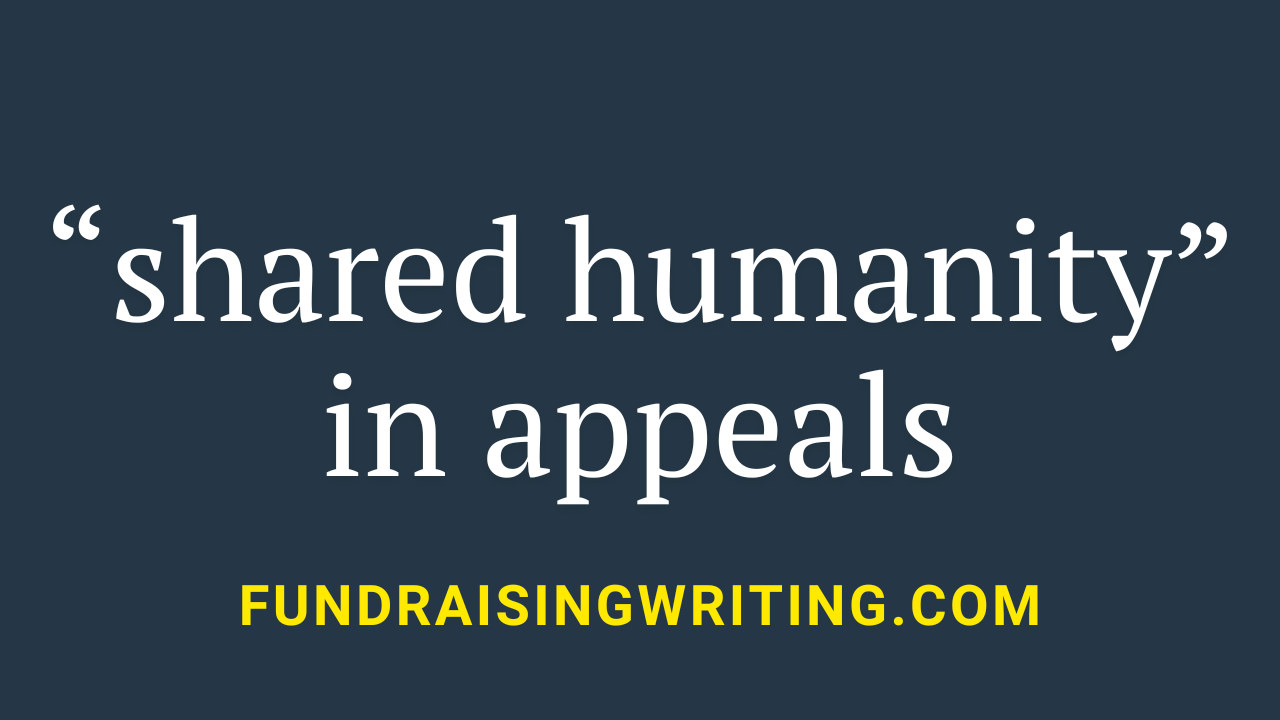
1 thing we all share 🫶
Grounding your appeal in emotions we are all familiar with transforms your fundraising writing.
On Saturday, Brett and I will be headed to the UK.
We're so excited.
It's my first time out of North America, and Brett's first time returning to Bath, England, since he studied there for a semester in 1992.
We will end our trip in Dublin, where I'll be presenting with Jeff Brooks at The Fundraising Summer School.
My session with Jeff, called From Rubbish to Rescue to Relationship: Fundraising Storytelling Reconsidered, will dive into Philanthropic Psychology principles to challenge the status quo.
In one sense, “rescue fundraising" works. It raises money. But it focuses only on compassionate love.
Compassionate love is not quite as powerful as companionate love, which is the kind of connection you have with family or close friends.
Here's one tip for you from our presentation:
Invoke our shared humanity.
1 thing we all share
Invoking our shared humanity means grounding your story in emotions every person is intimately familiar with. Feelings such as fear, grief, hope, joy, love, and loneliness.
In fundraising, when a donor recognizes in someone else's story a feeling they’ve felt deeply, they can feel the urgency of the need. This makes them more likely to give... and to develop a sense of relationship with your organization.
Bonus: you don’t need to do much explaining.
It's like you're "holding up a mirror" to the donor so they can feel what they've felt before and associate those feelings with your fundraising story.
Take the following opening line from a fundraising appeal letter written by Beth Beall, Executive Director at Vida Joven Foundation:
You and I both long for more peace in our world.
Maybe you’re wondering what the connection is between my donation and peace on earth?[First Name], there’s a direct link between your kindness and a more peaceful, stable life for a child such as Gael.
|
|
This approach works because it taps into something much deeper than pity. It taps into shared humanity.
The donor is not just helping a stranger. They’re feeling something they've felt before, that resonates with them, that's relevant to them. That feeling makes them identify with your fundraising story in a personal way.
That’s how you foster companionate love.
From our shared humanity, family.
The Fundraising Writing Newsletter
Every week we send a letter about fundraising, writing, donors, and life to smart fundraisers like you.
We share fresh, practical donor communication tips and resources... and some silliness too.
It’s free. Unsubscribe whenever you want.
We love when good things arrive in our inboxes. If you do too, subscribe today.



